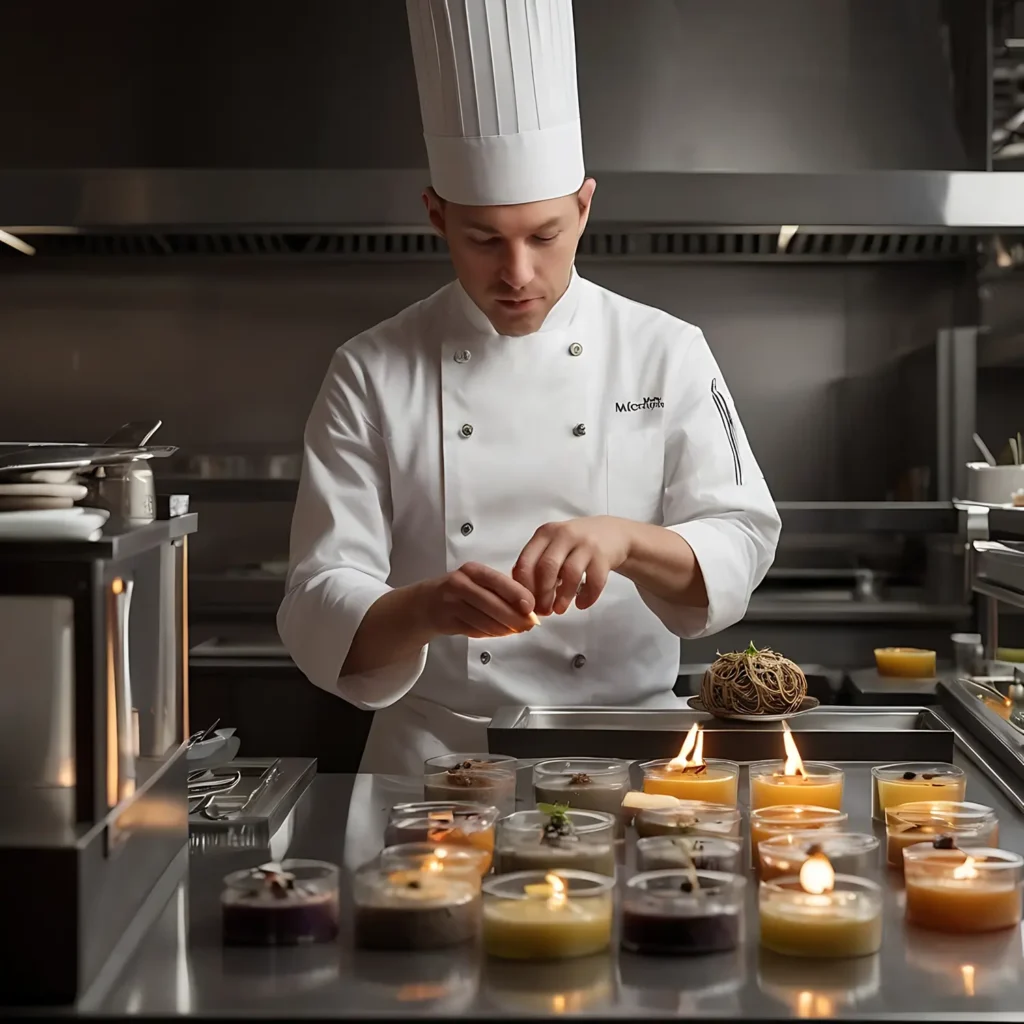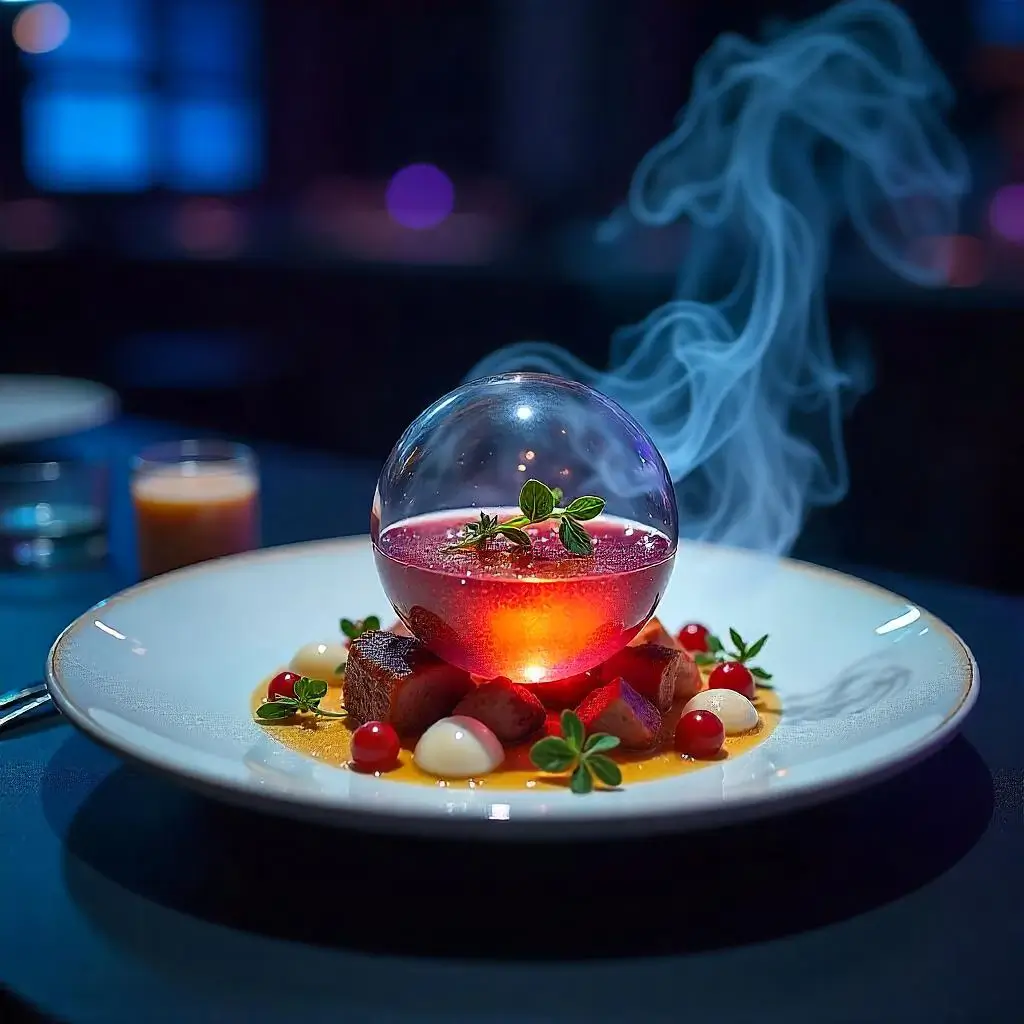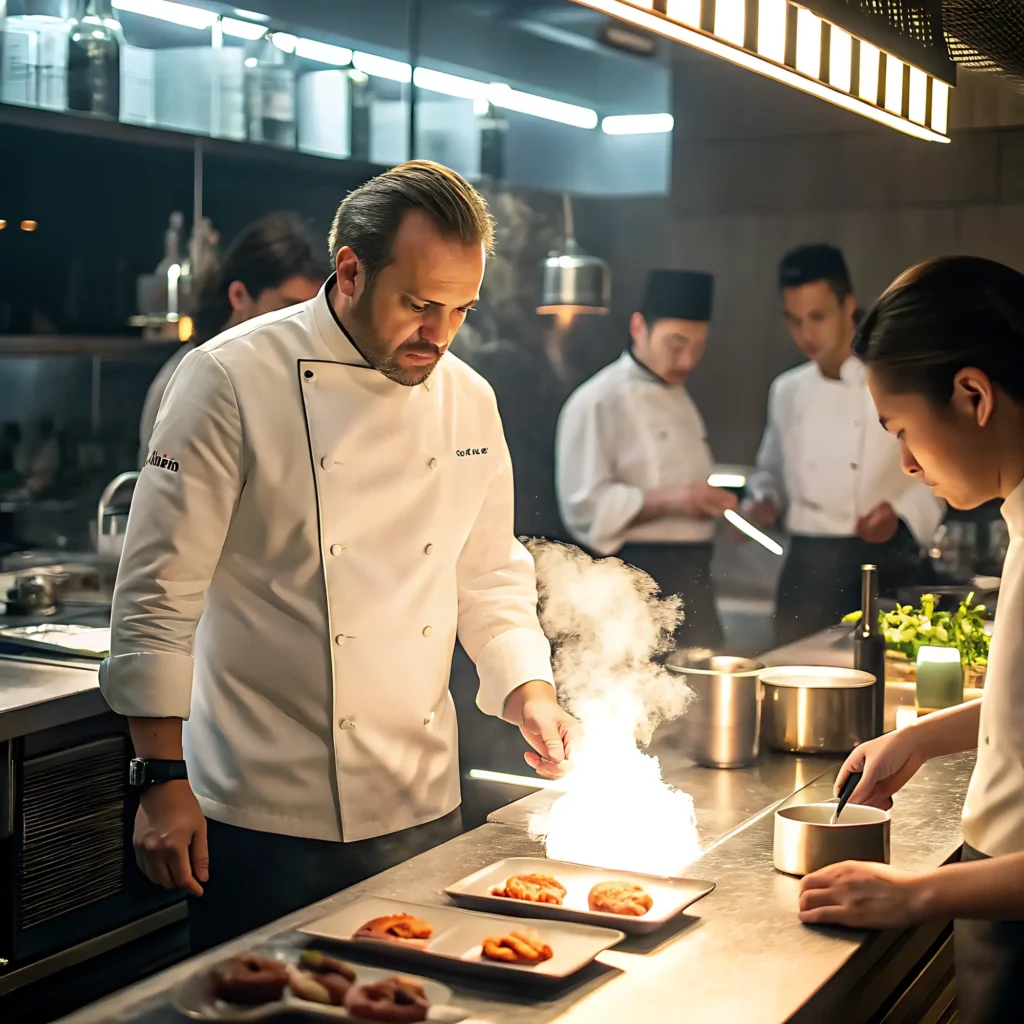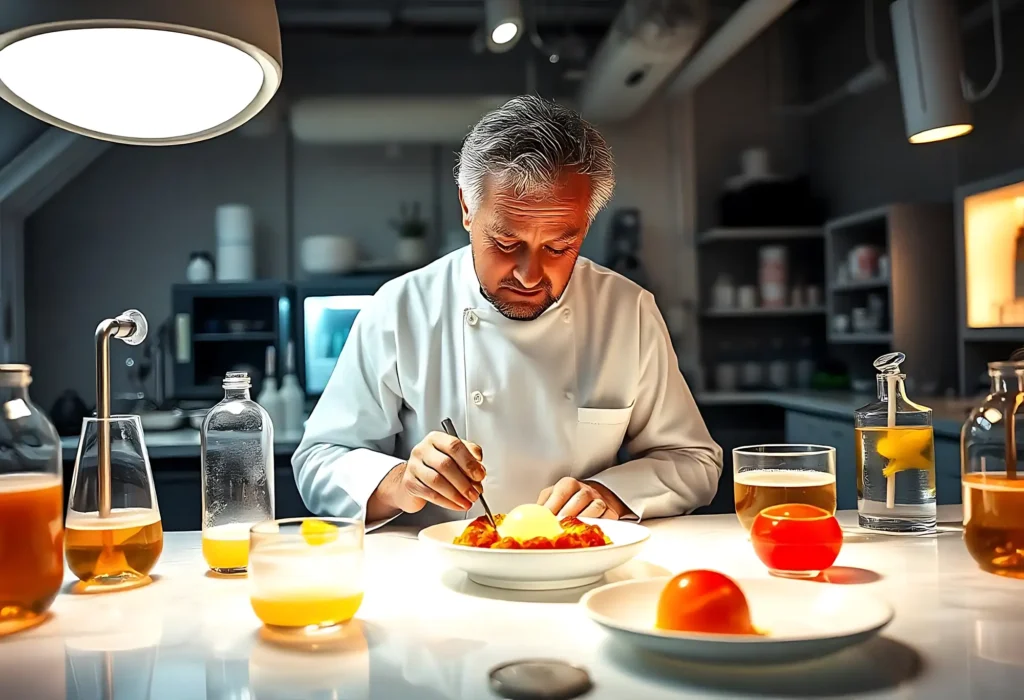The world of gastronomy is constantly evolving, driven by technological innovations, changes in consumer preferences and a growing awareness about sustainability. In 2025, the global kitchen is reinventing itself with bold flavors, innovative technologies, and immersive experiences that will change the way we enjoyed the food. Since the incorporation of artificial intelligence up to the revaluation of ingredients ancestral, we explore the trends that will dominate the dining scene this year.
1. Artificial intelligence and Automation in the Kitchen
The digital revolution has reached the gastronomy with force. In 2025, the restaurants and homes are adopting artificial intelligence-based solutions to optimize the kitchen. The chefs virtualpowered by advanced algorithms, you can customize recipes based on the preferences of the user, suggesting innovative combinations of ingredients.
The 3D printers foods no longer a concept, a futuristic, but a reality in high-end restaurants, where they enable the creation of dishes with shapes and textures impossible to achieve manually. In addition, the robots culinary are gaining prominence in the preparation of meals fast and accurate in industrial kitchens.
2. The Explosion of Flavors Fermented and Umami
Fermented foods have been capable of conquering the most demanding palates, and in 2025, its presence intensifies. The umamiknown as the "fifth taste", it becomes the protagonist of many dishes thanks to the rise of products like miso, kimchi, the kombucha and natto.
The restaurants are experimenting with fermentations prolonged and mixtures of microorganisms to enhance the natural flavors of the ingredients. In addition, the fermented are integrated into the desserts, leading to desserts with complex nuances and a balanced acidity that enhances the sensory experience.
3. Kitchen Regenerative and Sustainable Agriculture
The concern for the environment has led to a boom in the kitchen regenerative, which seeks not only to reduce the environmental impact, but also restore ecosystems. The chefs are collaborating with farmers who use practices of farming and regenerative, promoting the use of ingredients that contribute to the biodiversity.
The concept of "root to leaf" it is relevant in 2025, taking advantage of every part of the plant and minimizing food waste. In addition, the revaluation of varieties of grains and legumes boosts the kitchen with ingredients that are resilient to climate change and are rich in nutrients.
4. The Rise of the Food Hiperpersonalizados
Nutrition individualized reaches a new level in 2025 with the arrival of diets hyper-personalizeddesigned according to the genetics and gut microbiota of each person. Applications of AI analyzes health data and suggest menus are tailored to the specific needs consumer, optimizing mental and physical performance.
The restaurants have incorporated this trend with menus dynamic and customizable, allowing diners to select options based on intolerances, preferences and nutritional objectives. In addition, the supplements and functional superfoods are integrated naturally into the cuisine daily.
5. Dining experiences Immersive and Sensory
Beyond the taste, the dining experience has become a multisensorial journey. In 2025, the restaurants offer immersive experiences where light, sound and augmented reality transform the way we perceive food.
The dinners interactive 3D projections, aromas designed to enhance the tasting and the use of virtual reality to simulate different environments are redefining the concept of gastronomy. Diners can virtually travel to a thai market while enjoying an authentic curry, or experience the serenity of a forest while savouring dishes made with ingredients in the wild.
6. The Fusion of the Culinary Traditions with Technology
The globalization of cuisine has led to the reinvention of traditional dishes using modern techniques. The kitchen and molecular biotechnology combined with ancestral recipes to create innovative experiences.
One of the approaches most revolutionary is the creation of alternative proteins inspired in the traditional cuisine. From meat grown in lab with a flavor and texture identical to conventional meat up fish and plant-based designed molecularly to replicate the structure of the tuna or salmon.
7. The rise of Ingredients Ancestral
In 2025, the global kitchen rediscovers ingredients forgotten that provide nutritional value, and cultural. Foods such as amaranth fonio, teff and camu camu re-emerge as options highly nutritious and sustainable.
The ancient civilizations knew of the benefits of these superfoods, and now they return with force in haute cuisine. The flour of insects, rich in protein and minerals, is incorporated into the bakery and pastries, while the energy drinks herbal ancestral consolidated as healthy alternatives to soft drinks conventional.
8. Cocktail bar Evolutionary and Mixology Sensory
Mixology is reinvented with cocktails that combine science, art and technology. The drinks in 2025 go beyond the classic drinks and transformed in sensory experiences with ingredients such as fragrant smoke, pearls of liquor and foams infusionadas.
The use of distillates without alcoholmade with herbs and spices, it allows the creation of drinks sophisticated without losing the depth of flavor. In addition, the mixology molecular employs techniques of liquid nitrogen and esferificación to offer cocktails visually striking and with an aromatic complexity only.
9. The Boom in the Gastronomic Space
Space exploration has inspired a new branch of the food: kitchen designed for life beyond the Earth. Innovative companies are developing foods that are optimized for consumption in zero gravity, with the textures and flavors are adapted to extreme environments.
The chefs avant-garde already experimenting with dishes that could be served in the space station and future colonies on Mars. Ingredients as microalgae, proteins, cultured, and dehydrated fruit become the protagonists of this new trend in culinary that looks beyond the planet Earth.


Conclusion: A Year of Innovation and Unique Experiences
By 2025, there will be a year of radical transformation in the world of gastronomywhere technology, sustainability and creativity merge to offer unforgettable culinary experiences. From kitchens hiperautomatizadas to the revaluation of ancient traditionsthe world of food is reinvented with an approach that is more aware and sophisticated.
Consumers are increasingly looking to flavors intense, multi-sensory experiences and foods that respect the equilibrium of the planet, and the industry is responding with proposals for bold and avant-garde. The kitchen of the future has arrived, and it promises to amaze us with each bite.


